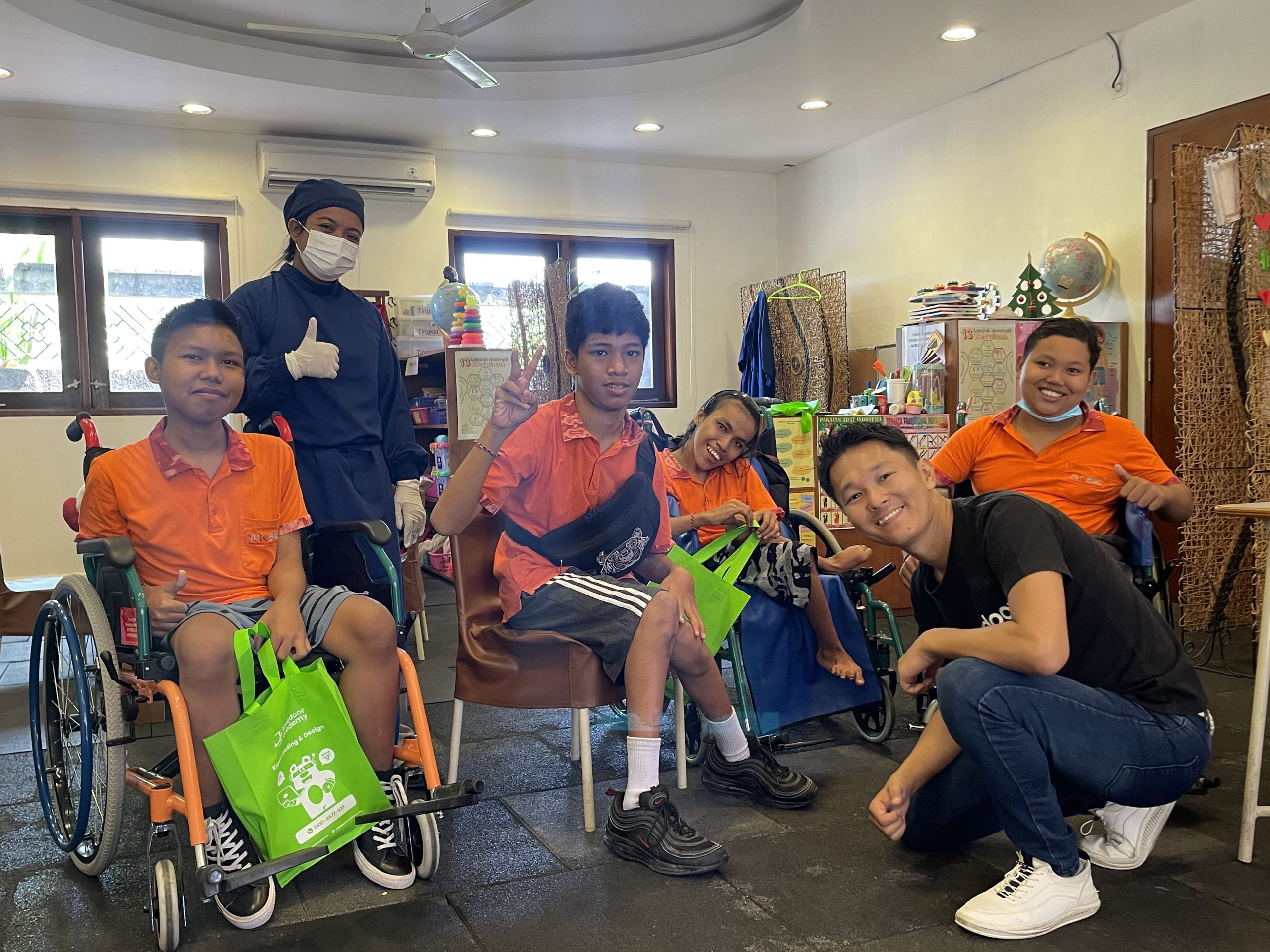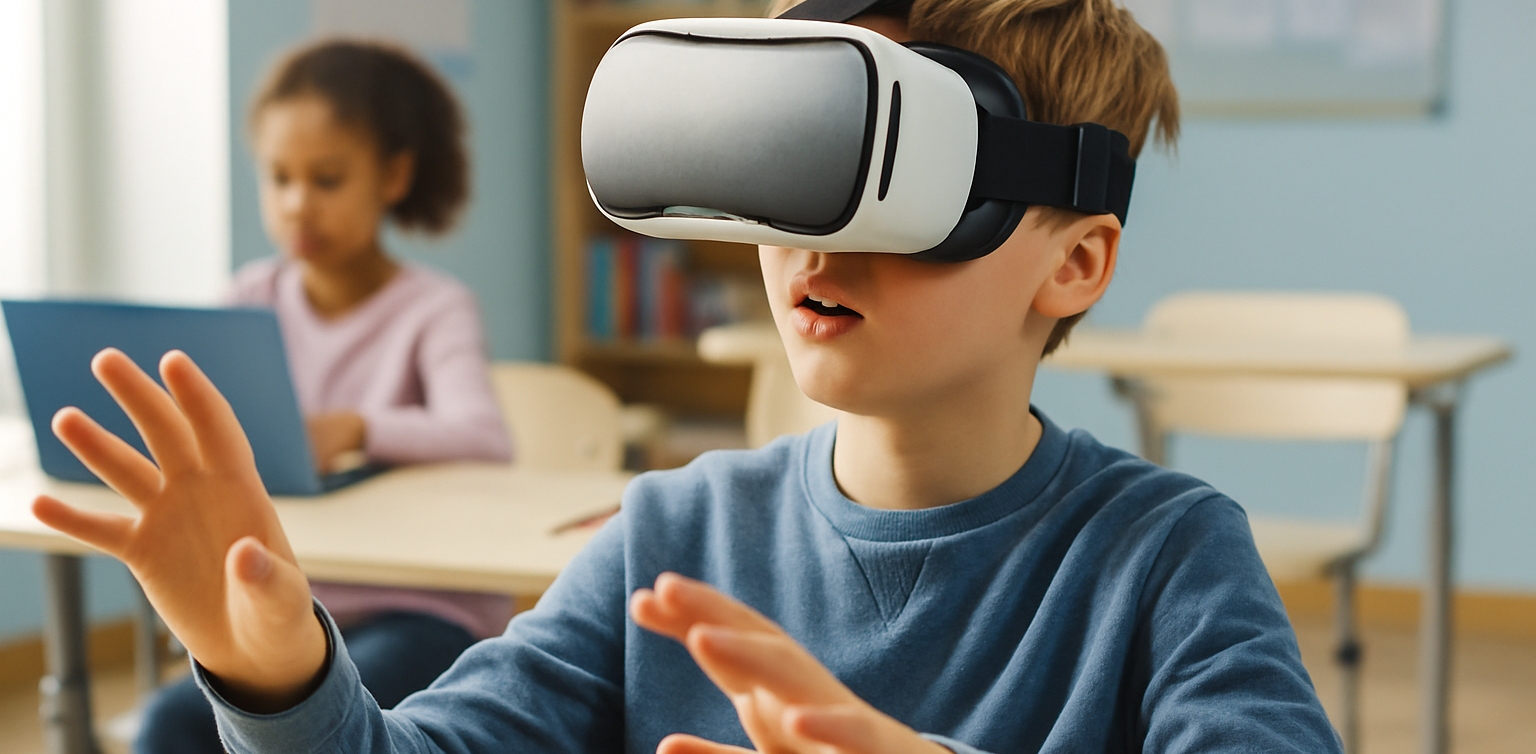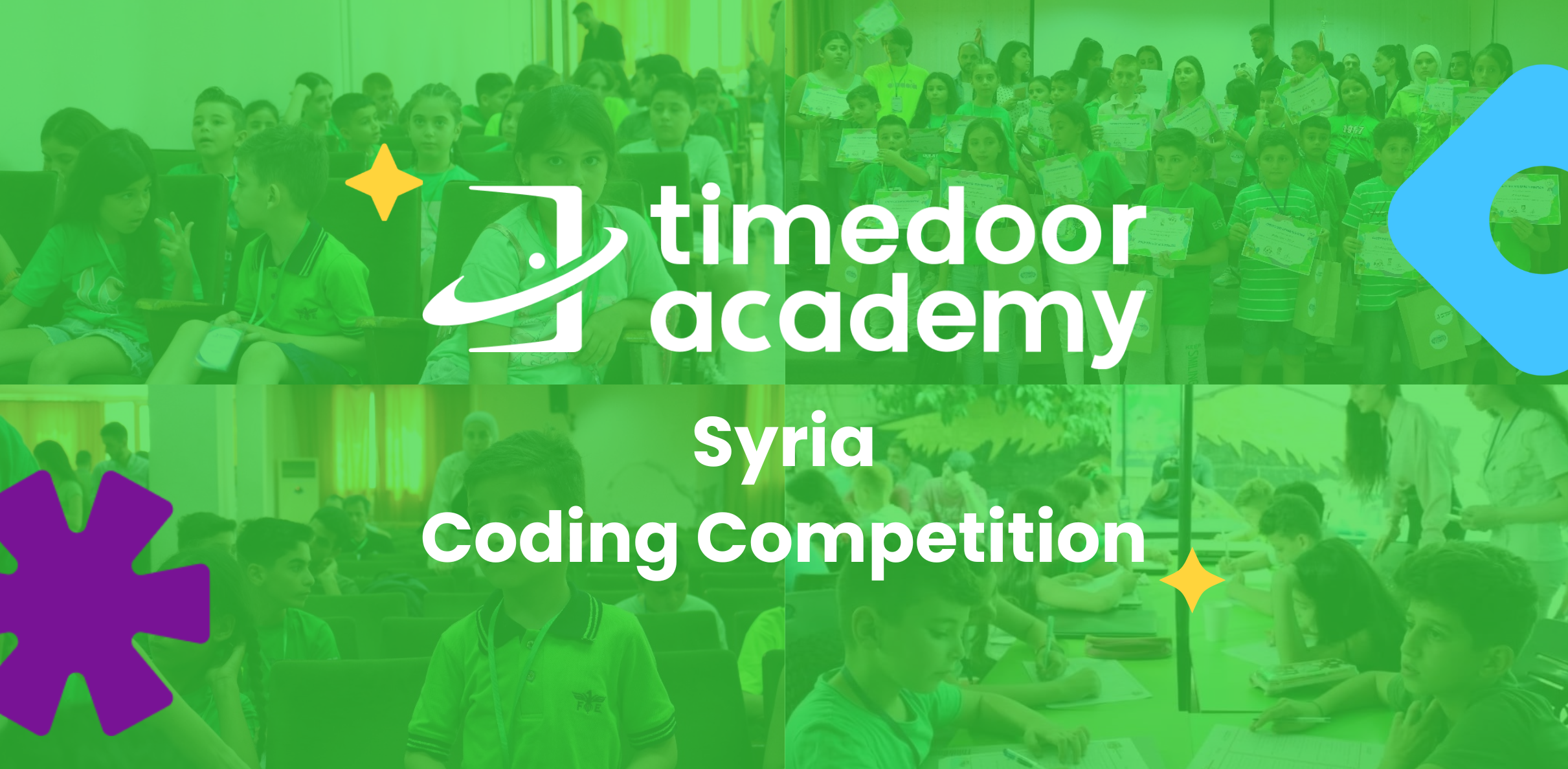Coding for a Brighter Future: Empowering Children with Disabilities
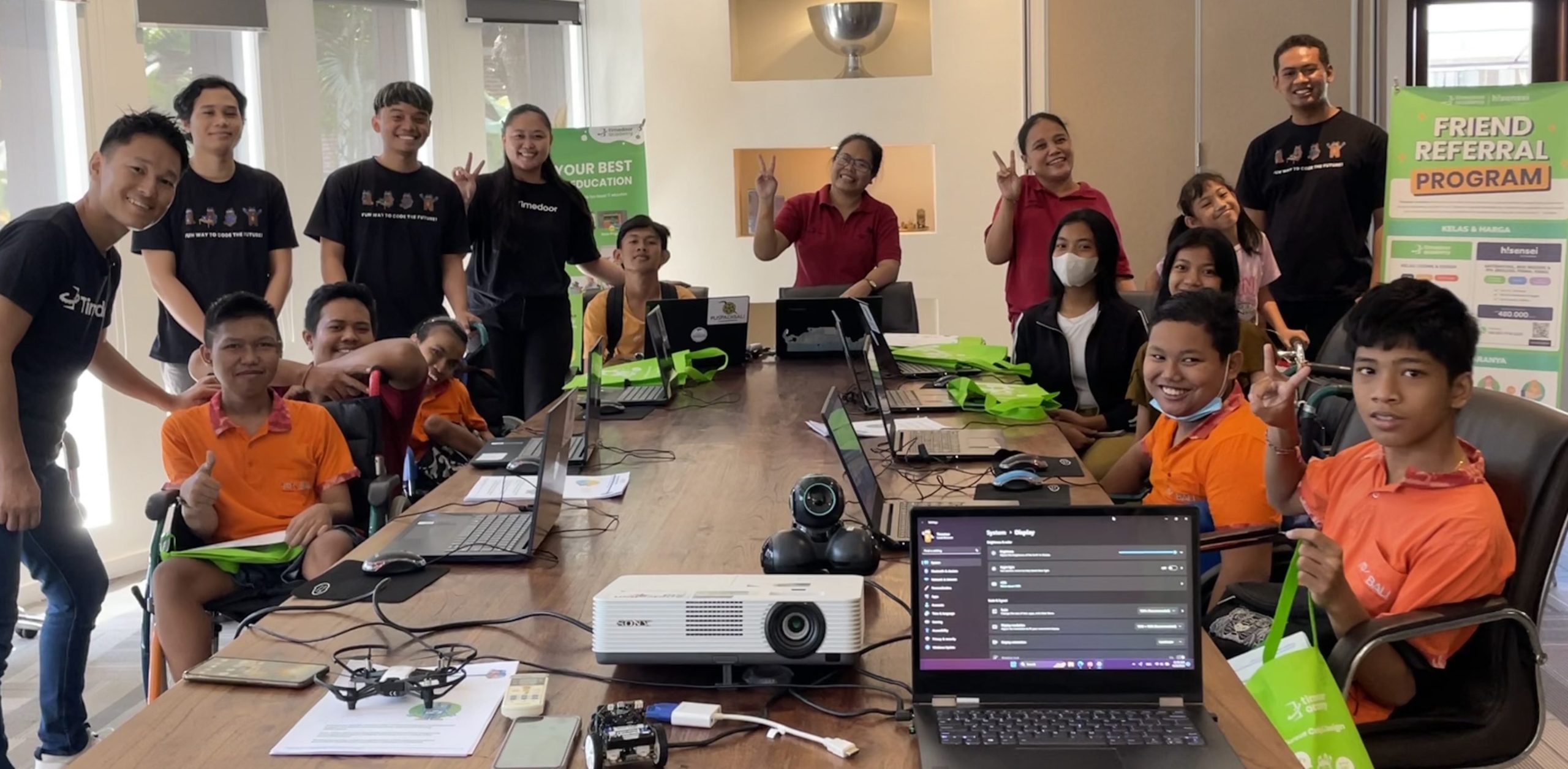
Timedoor Academy collaborates with Puspadi Bali to introduce coding to talented disabled children.
Introduction
Recently, our Coding School had the wonderful opportunity to collaborate with Puspadi Bali, an organization that supports children with disabilities. Together, we organized a one-day coding workshop. This workshop aimed to show these talented disabled children how coding can offer them exciting opportunities.
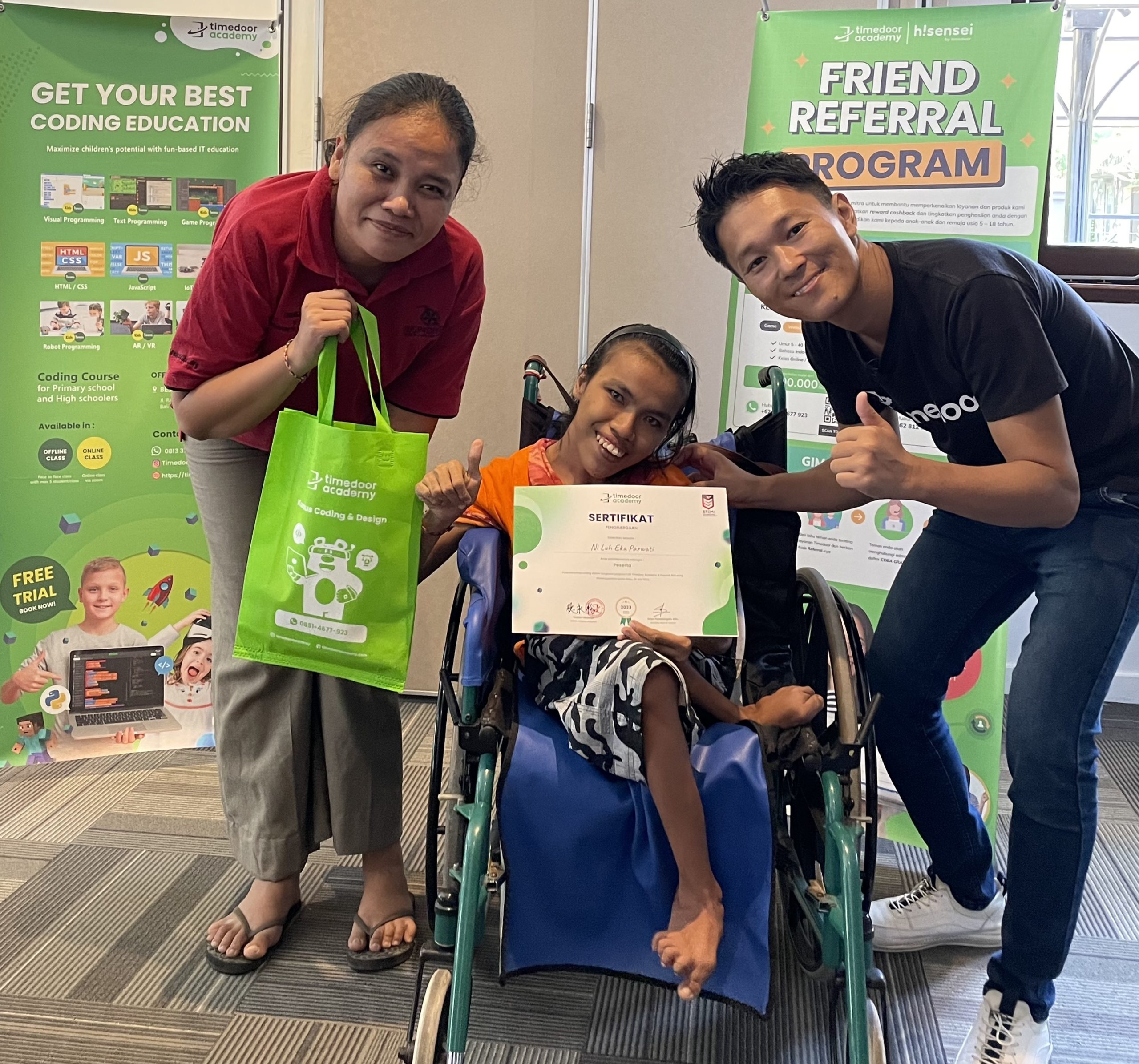
What is Coding and Why is it Important?
Coding is the process of creating instructions for computers using programming languages. It’s an essential skill in today’s digital world. For individuals with disabilities, coding can be a very important tool. It allows them to work in many fields without the need for physical labor, and they can often work from home.
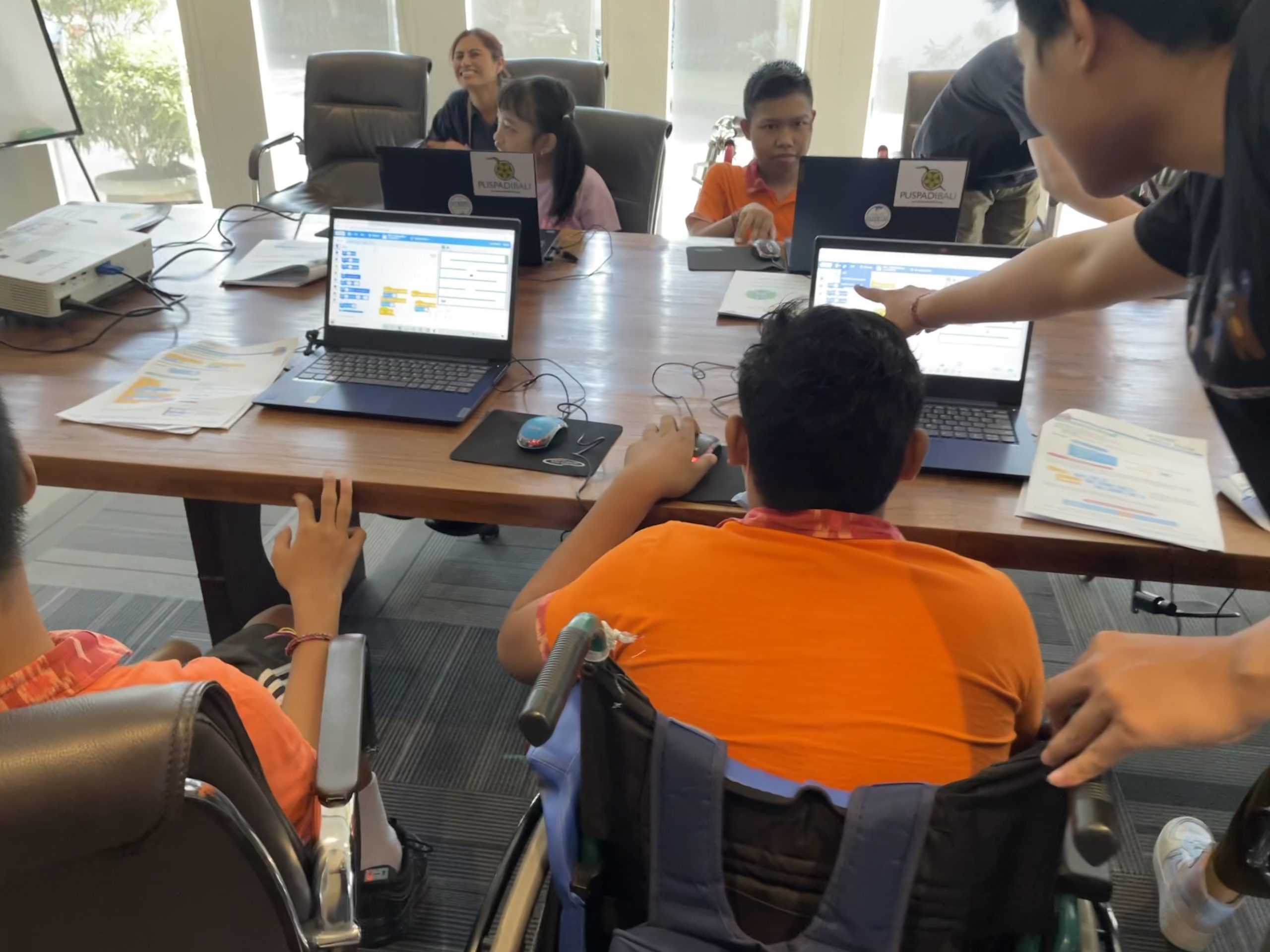
Challenges for Disabled Individuals in Employment
It is important to understand that people with disabilities often face challenges in finding jobs. This is due to various reasons such as physical barriers, lack of accessibility, and sometimes, sadly, discrimination. Learning to code can help them overcome these challenges as the tech industry often offers more flexible work environments.
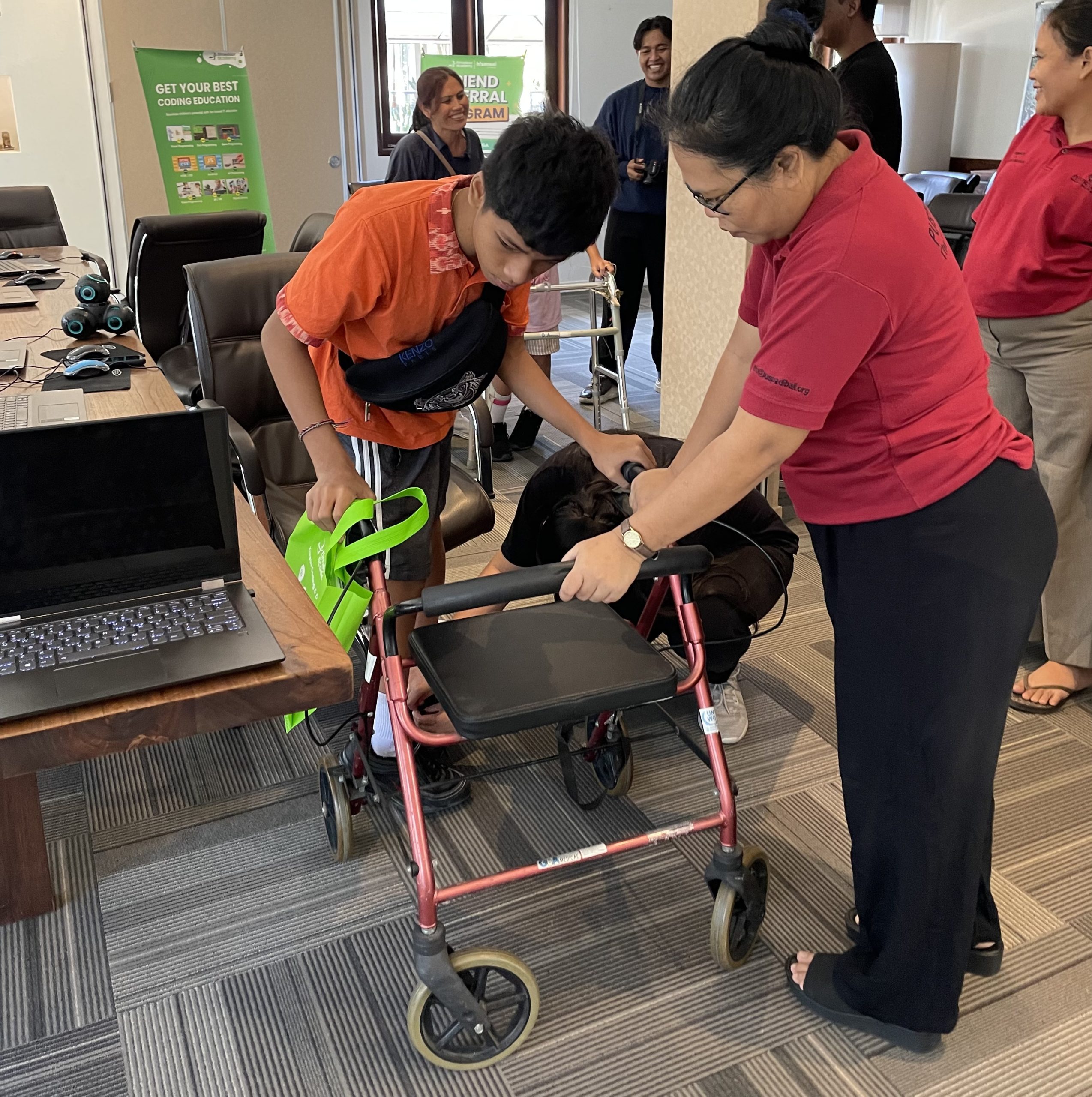
Message from Yutaka
Our CEO, Mr. Yutaka Tokunaga, began the day with an inspiring talk. He explained to the children why technology and coding are so important. He encouraged them to focus on their strength and how they can use them for success instead of lamenting their misfortunes. Yutaka concludes the seminar with the message “Don’t Just Play the Game, Make One!”
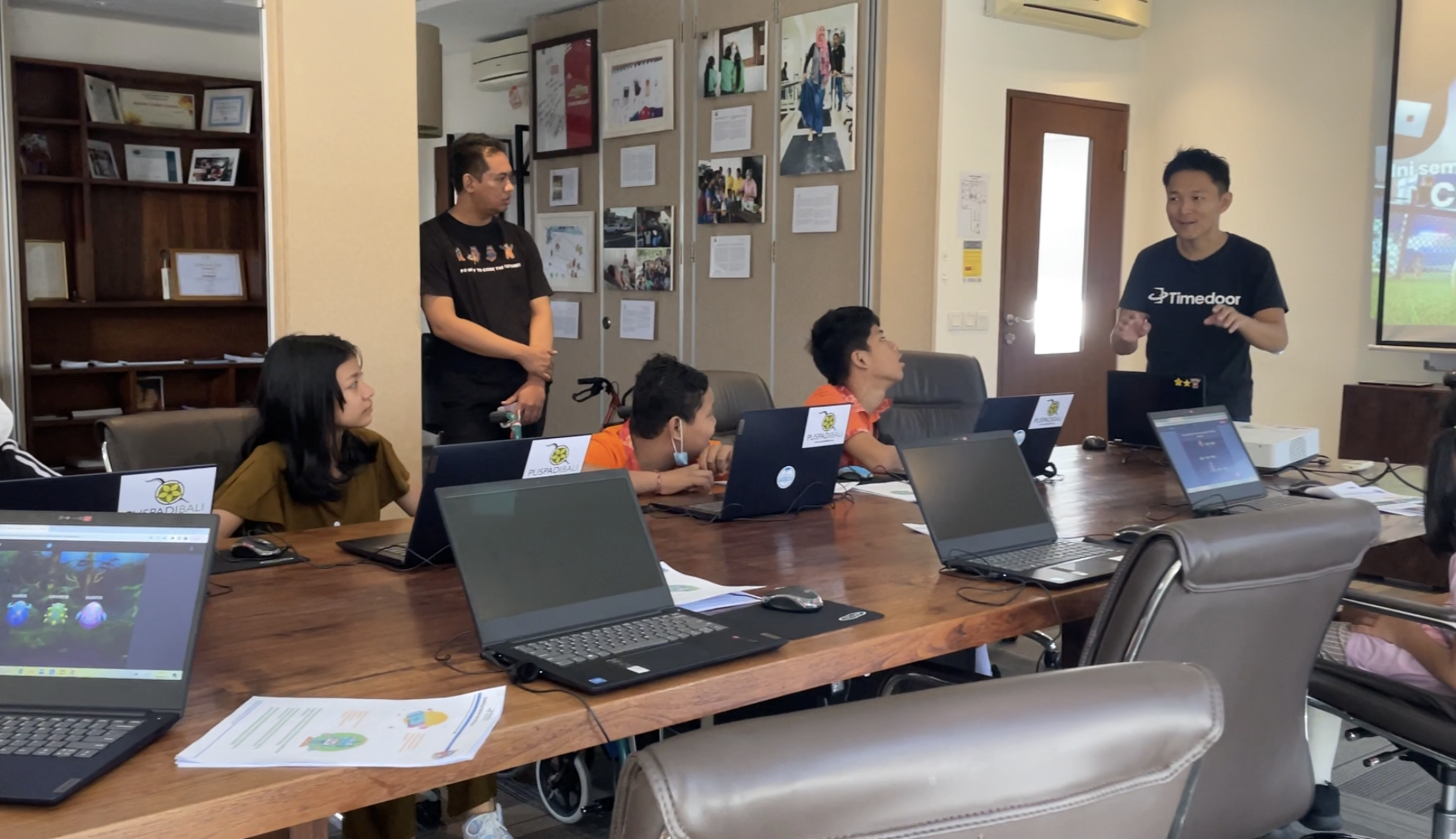
Hands-On Coding Experience
After Mr. Yutaka’s talk, the children participated in a coding workshop. They learned basic coding concepts and even built their own games using a program called Scratch. Scratch makes coding fun and easy by using blocks that fit together to build programs. The children were very focused and did an impressive job!
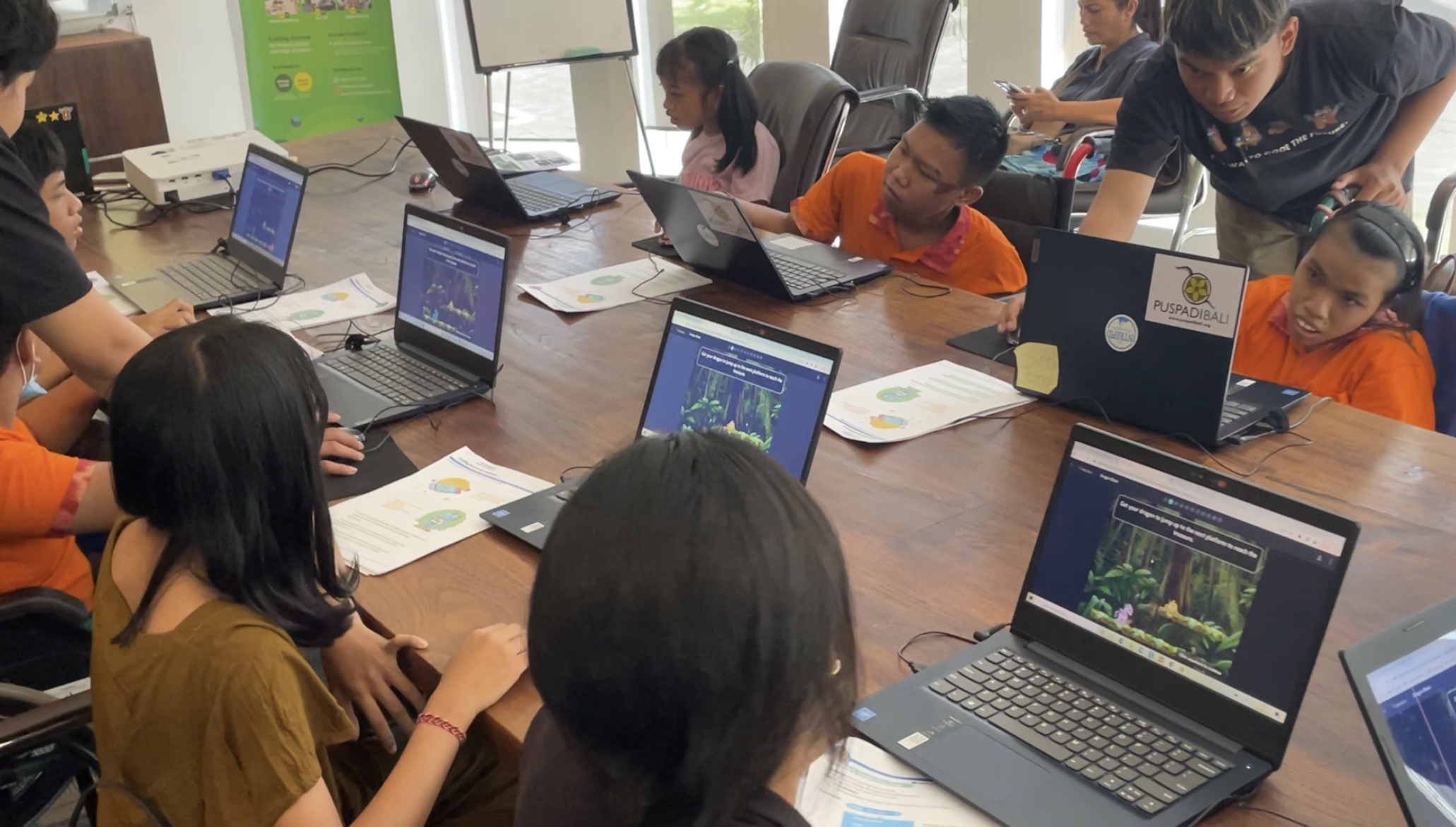
Dreams Take Flight
It was amazing to see how the workshop ignited dreams within these young hearts. By the end of the day, some of the children spoke about their aspirations to become digital entrepreneurs, programmers, or e-sports players.
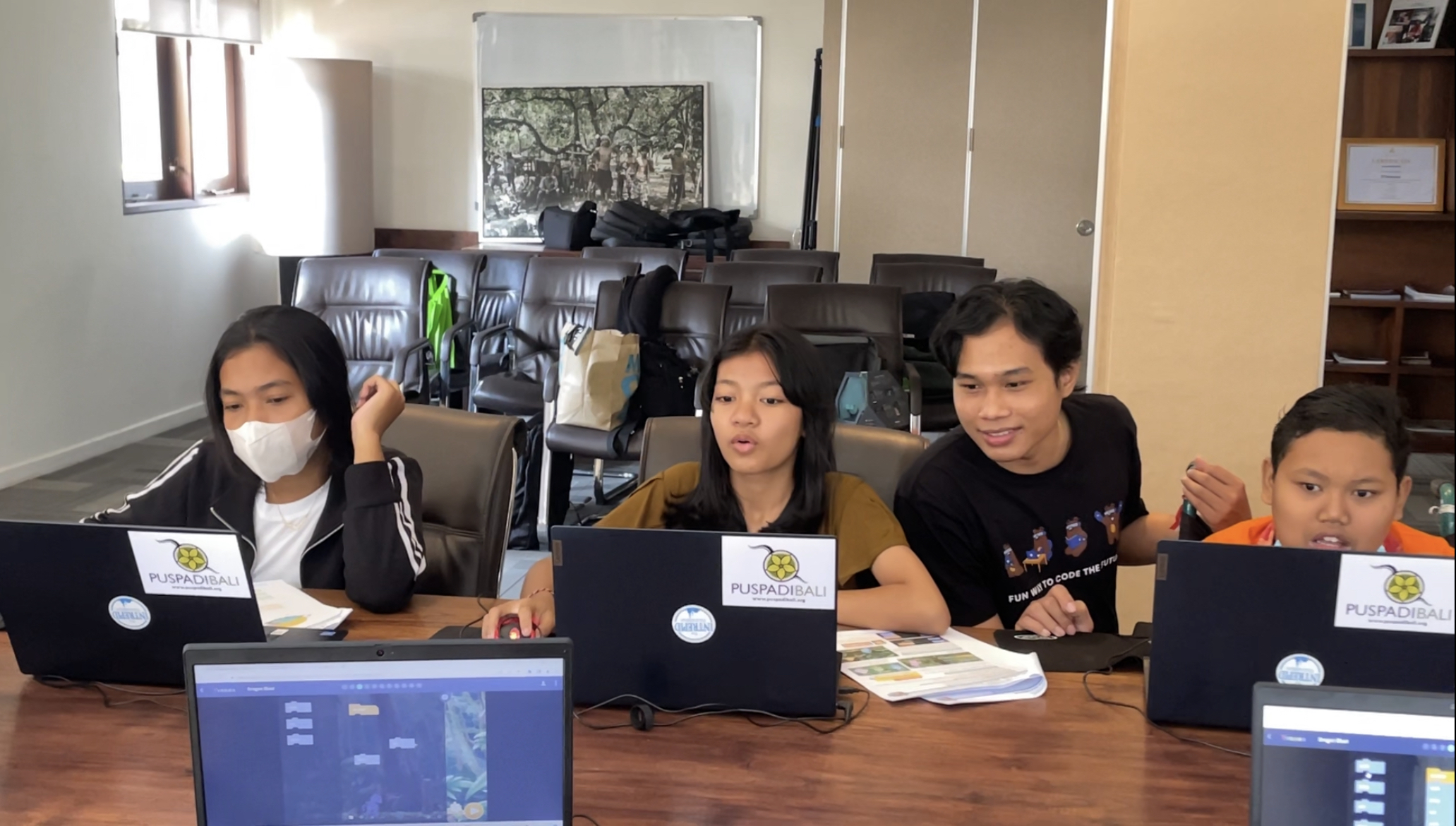
Looking Ahead
Our Coding School is committed to giving back to the community. We believe that every child, regardless of their physical abilities, should have the opportunity to learn and grow. This workshop was just a small step in that direction, and we are excited about continuing these efforts.
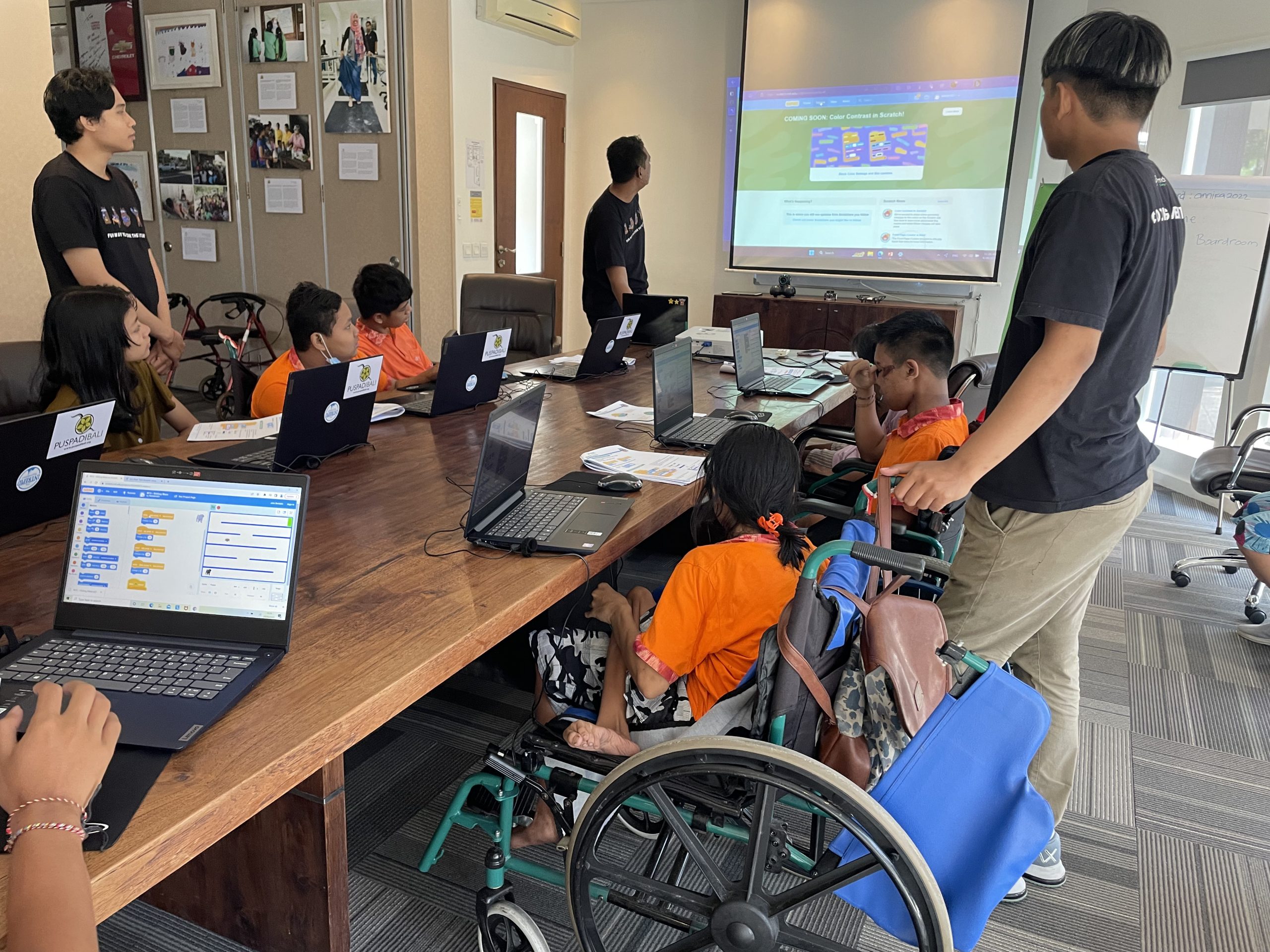
Coding for Bright Future
As we progress into an increasingly digital age, coding skills are more valuable than ever. Through coding, we can build a more inclusive world where everyone has the opportunity to succeed and thrive. We hope that they will continue to be interested in studying and that they will use technology in the future to play an active role in society.
